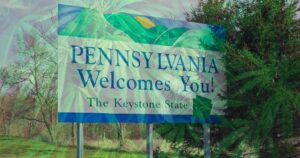Los Angeles has efficiency on the agenda when it comes to processing and approving licensing applications for cannabis businesses, following Michelle Garakian’s succession as the cannabis chief in March. She wants to reduce bureaucratic red tape as well as improve communication with and assistance to operators and applicants in one of the largest regulated cannabis marketplaces in the world.
The Gist Of The Changes
Former assistant to Mayor Eric Garcetti and veteran insider at the L.A. Department of Cannabis Regulation (DCR), Garakian spoke with efficiency on the agenda on marijuana policy, new departmental initiatives, and the drive to convert thousands of temporary permits into yearly licenses. Here are some of the discoveries made:
The DCR’s long-term objectives
One objective is to return to the department’s primary goal, i.e. licensing. Customer service and business growth are their main priorities, and licensing plays a vital role in this.
Along with concentrating social equality in each and every one of those precepts, that goal has been the fundamental principle that has guided Michelle.
Information about the new social equity verification process that stakeholders should be aware of
Firstly, the criteria for verification have been tightened because they want to make sure the people participating in this process are those who are actually struggling with the effects of the drug war.
You must have a cannabis conviction or arrest, as well as either show that you have a low income or that you live in an area that is disproportionately affected.
They will no longer use zip codes for residency requirements; instead, they will use police reporting districts, which narrow the search to the areas with the highest number of cannabis arrests or convictions.
They have received about 900 applications since this procedure commenced on May 26, and the government has at least 90 days to process those petitions once the verification window closes on July 25.
Why there is a drive to let holders of social equity licenses move
Michelle stated that they must be able to give them permission to depart from their community plan. The council may be warming to it, in her opinion and they intend to keep pushing for it.
Staff increases to fulfill the increased application deadlines
Every week, their department conducts interviews several times and they’ve allocated 21 brand-new positions. Michelle was a member of an interview panel that conducted nearly 17 interviews over the course of two days, and she stated that they are making every effort to fully onboard new employees.
After a two-year hiring halt, all of these large departments began hiring, and now there are openings in every position. Thus, it’s really competitive. A wide range of employment opportunities will be available in the licensing industry because they require the capacity there.
There are a few positions in the group for social equity and several positions for their policy and communications team. Additionally, they are bringing in additional high-level management, which will reduce the concentration of policy work at the executive level.
Other upcoming DCR efforts
They’re working to better organize email accounts so that people receive a response to their emails within 48 to 72 hours thanks to a new procedure we introduced. Additionally, they’ve put in place a system where calls are answered more quickly, and we keep track of how many calls are received.
“Attempting to organize our division so it operates more like a business. I’m attempting to keep track of these benchmarks in order to determine whether or not things are getting better over time,” stated Michelle to MJBiz.
“I instructed my assistant to schedule 25 different stakeholder meetings when I initially (was promoted) in March so that I could just speak with a range of stakeholders and ask them, “What are your challenges?” What problems do you have? Send me the top three things you want accomplished.”
Some of those things have been carried out by them and Michelle is listening and doing her best to be receptive to queries.
What will be done about unlicensed operators entering the regulated and subterranean markets?
“This problem is urgent in a lot of ways. According to local legislation, DCR is powerless to impose sanctions for illegal activities.[…] We also lack the power to directly influence how other city departments allocate their limited resources to this problem.”
The department’s complaint page can be used to file complaints about both legal and criminal enterprises – if the business is unlawful, it will be sent to the police, who may enter and turn off the power and water.
Planned Social Equity Assistance
They created an online learning management system that provides more than 90 hours of in-depth cannabis industry training. “We conducted two business, licensing, and compliance seminars per week in April on a variety of subjects, including recruiting, security, and how to fill out insurance documents,” stated Michelle.
Additionally, they are creating a 20-person pilot program for capital case workers. Applicants who have successfully completed the pre-application evaluation step are eligible for the program.

Most recreational cannabis businesses in Los Angeles are operating without annual licenses from the city. A situation the newly launched Department of Cannabis Regulation is trying to fix and change through enforcement, education and tech – and we couldn’t be happier as Los Angeles needs cannabis reform desperately.
Enjoyed that first hit? Come chill with us every week at the Friday Sesh for a freshly packed bowl of the week’s best cannabis news!
- Trial Begins for Ex-Rohnert Park Officer Accused of Corruption, Highlighting Failures in Cannabis Law Enforcement
- From Los Angeles to Berlin: How U.S. Cannabis Growers Can Lead in Europe — with Germany as the Launchpad
- Federal Judge Upholds Gun Ban for Cannabis Users Despite State Legalization
- Czech Republic Takes Historic Step Toward Cannabis Reform
- Case Study: Financial Litigation Support for a Cannabis Business
- Oregon’s Ryan’s Law Bill Stalls Again, Advocates Vow to Continue the Fight















